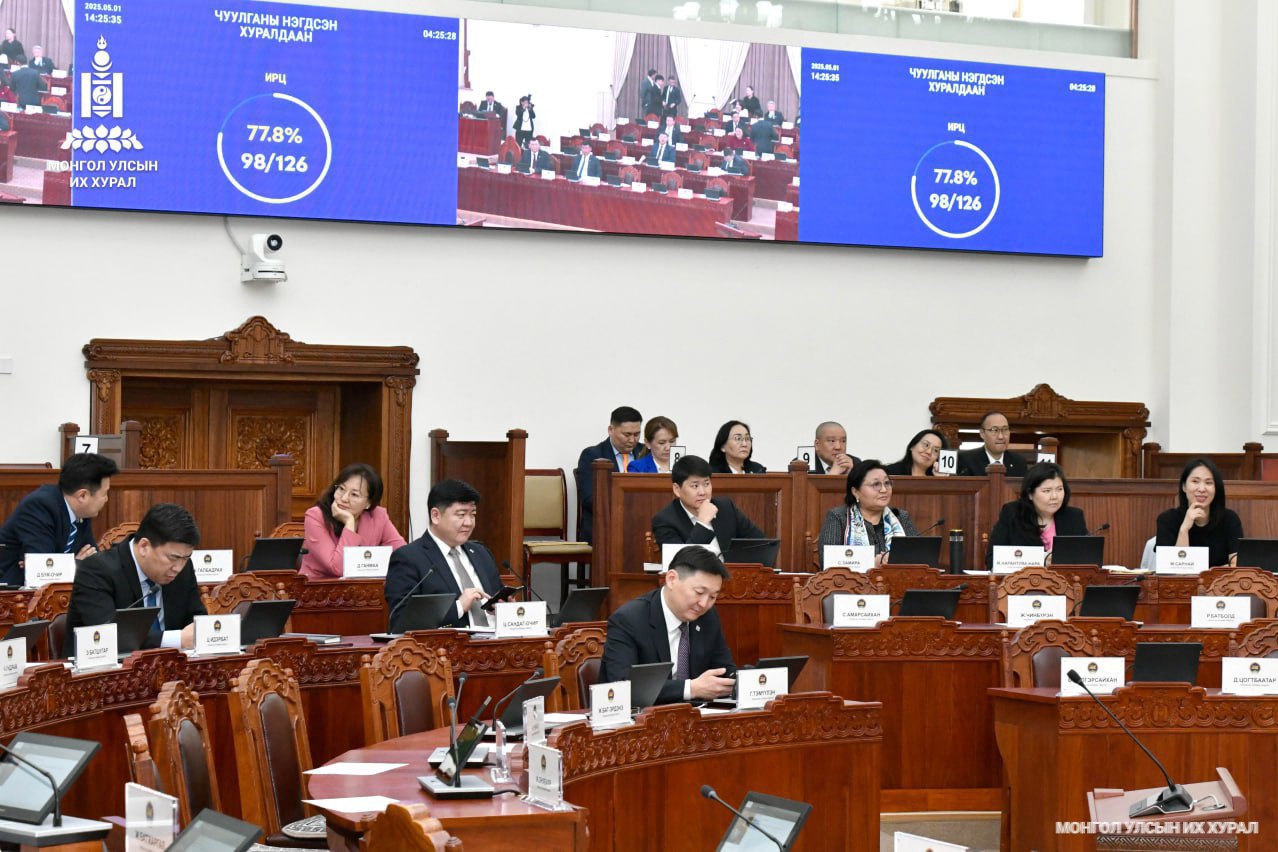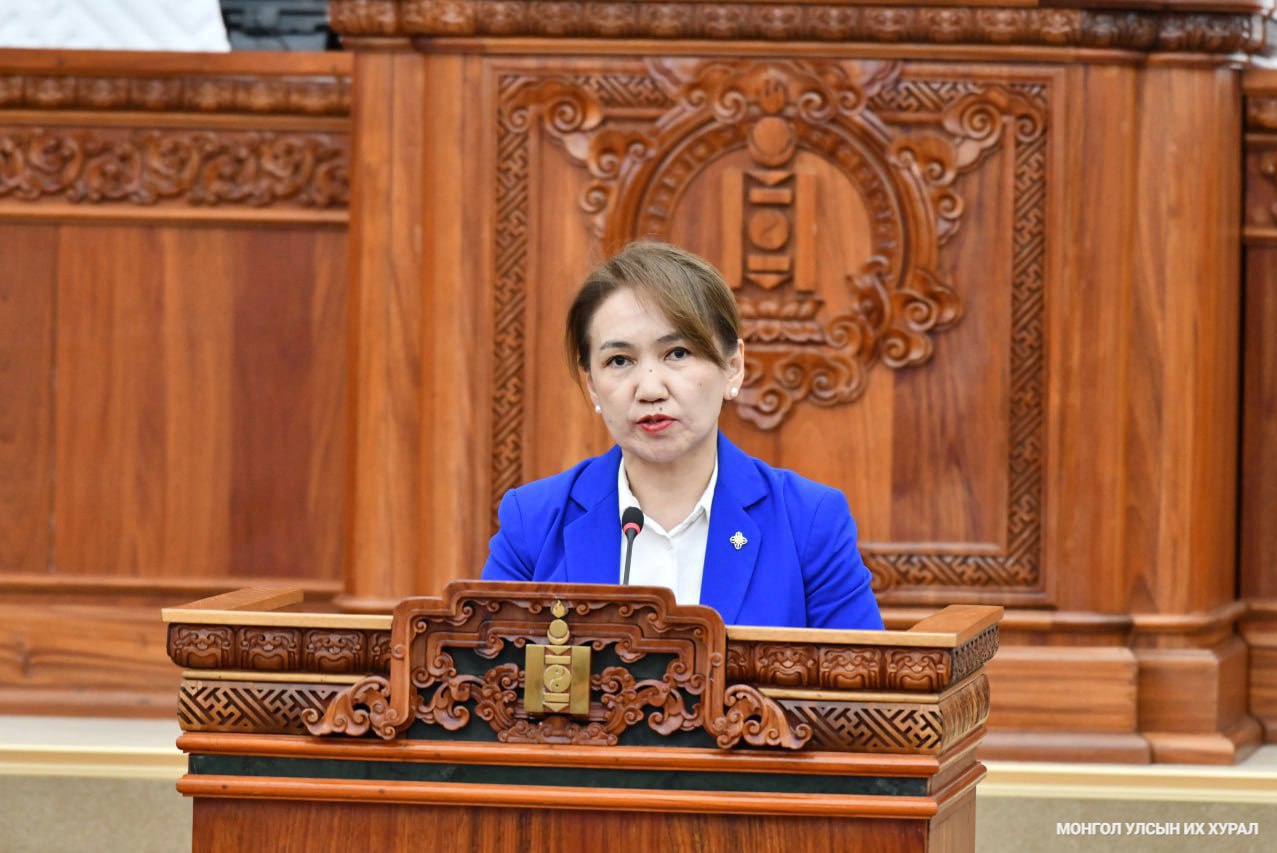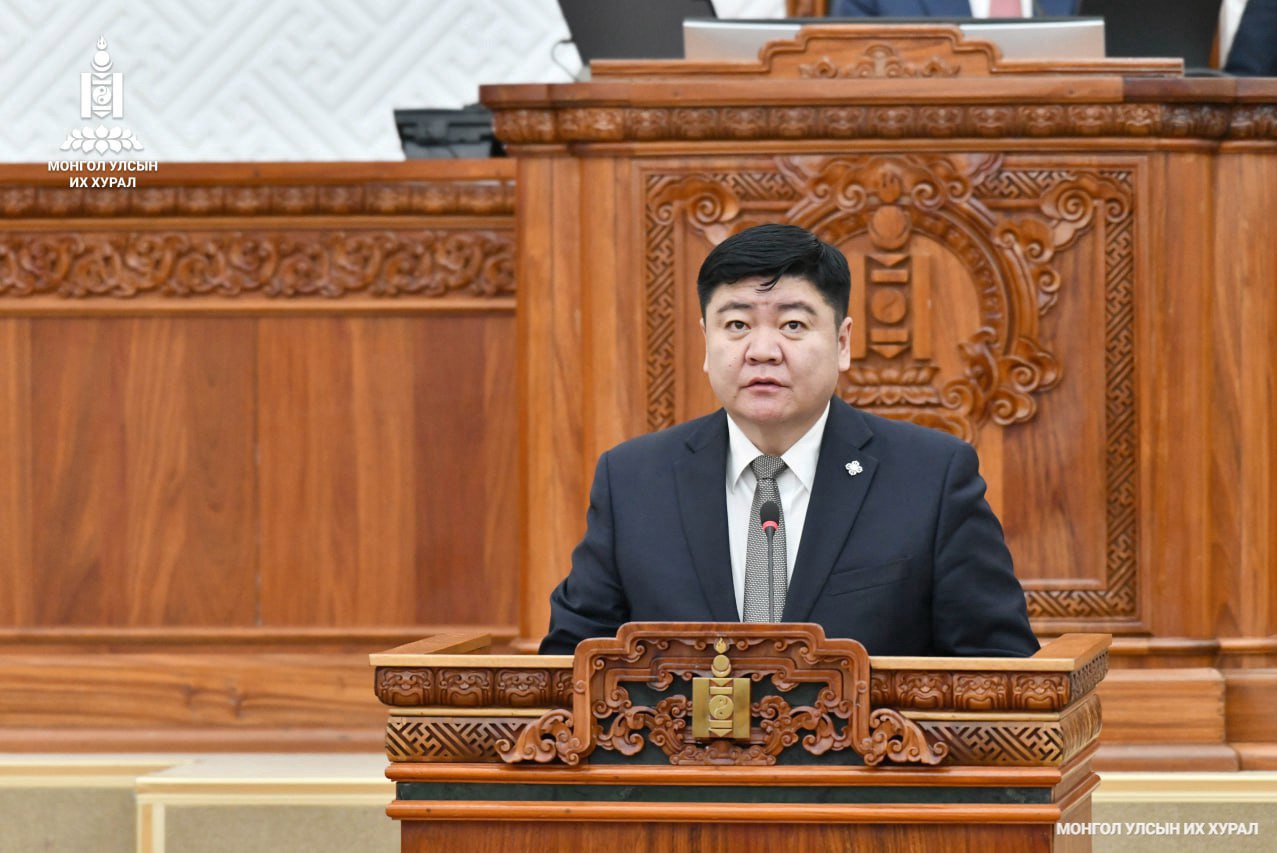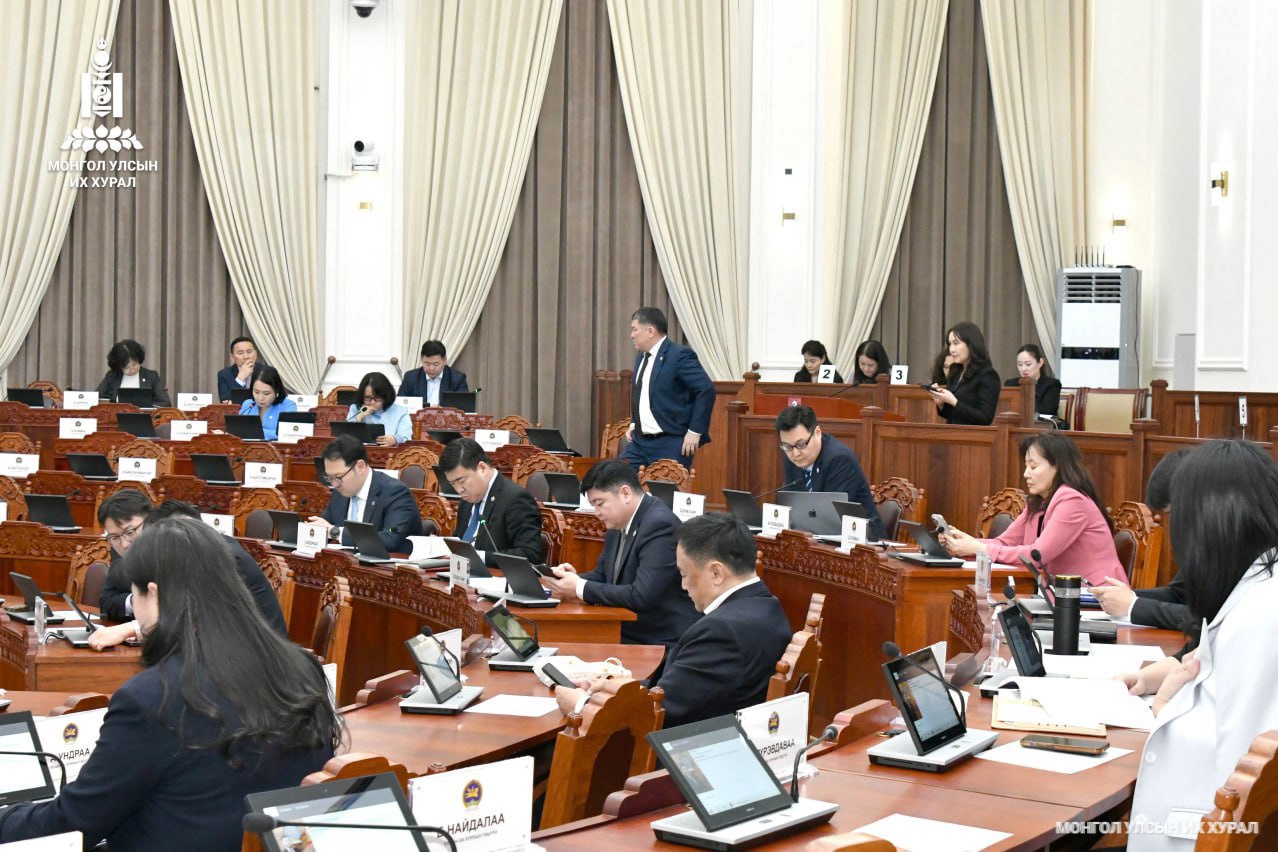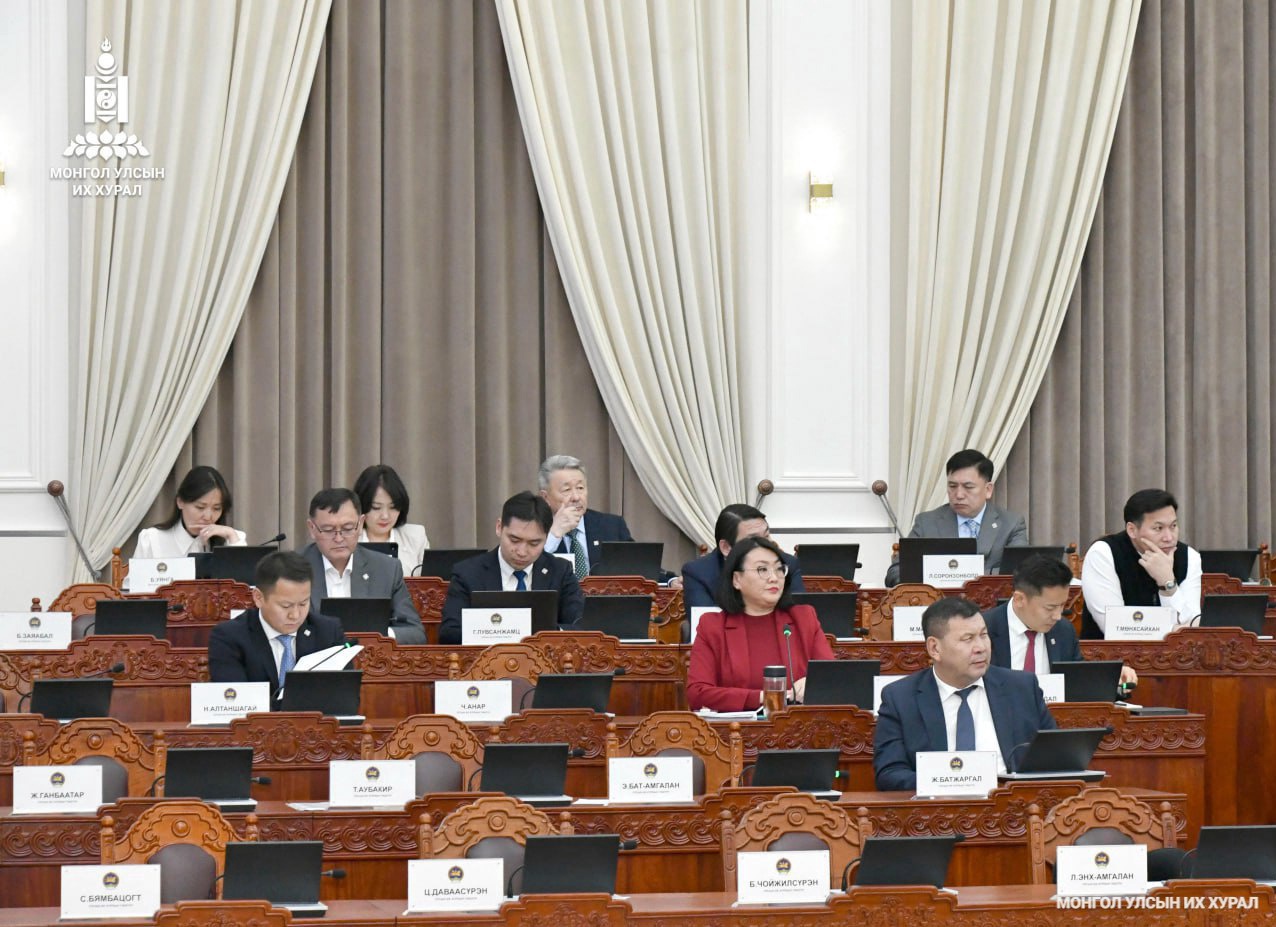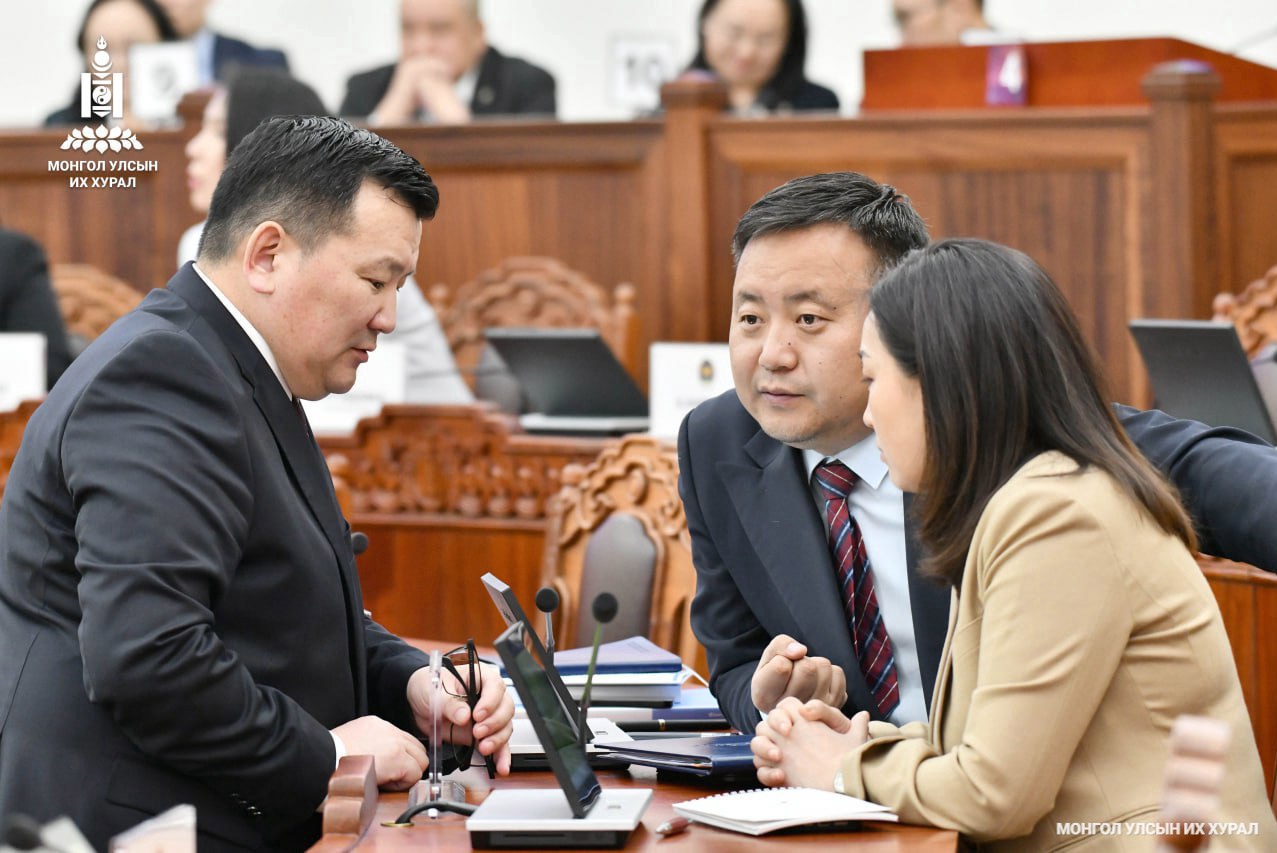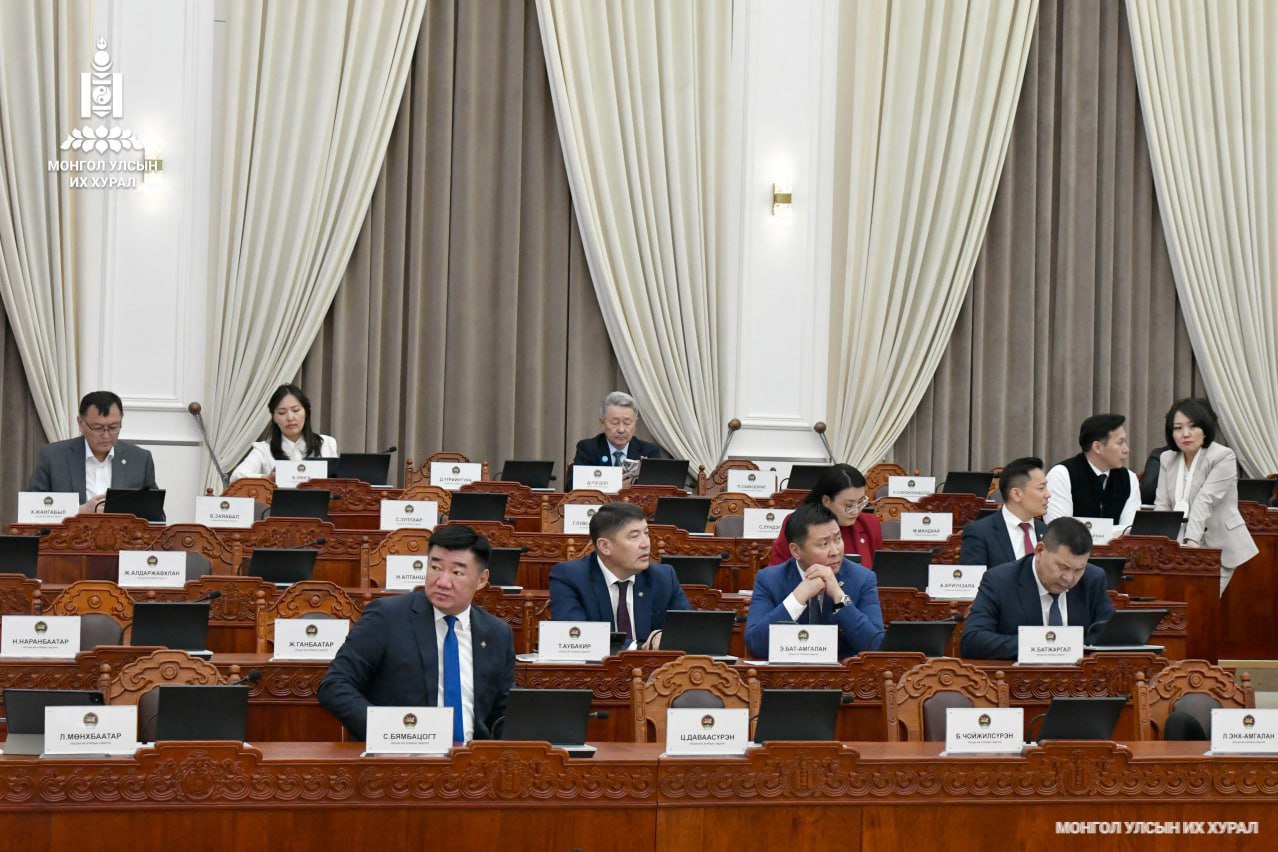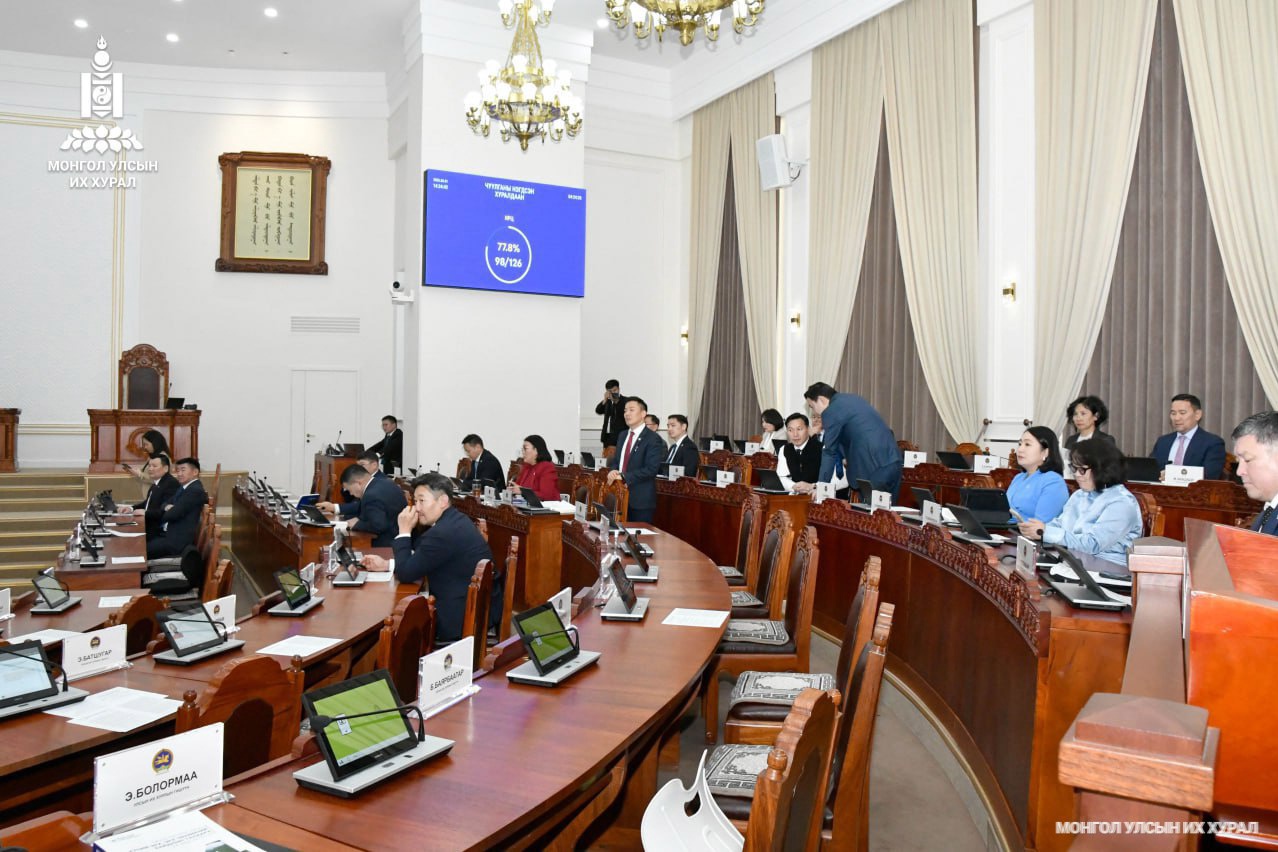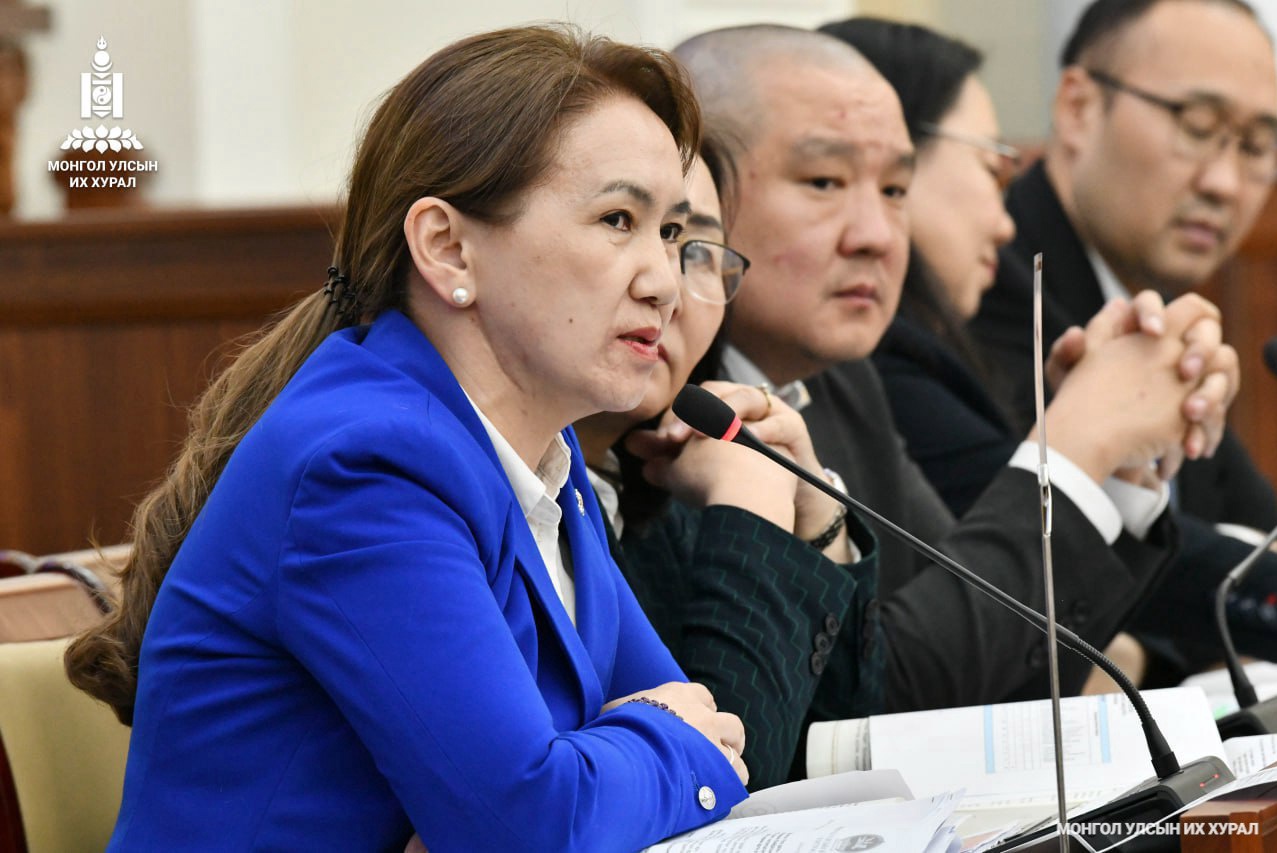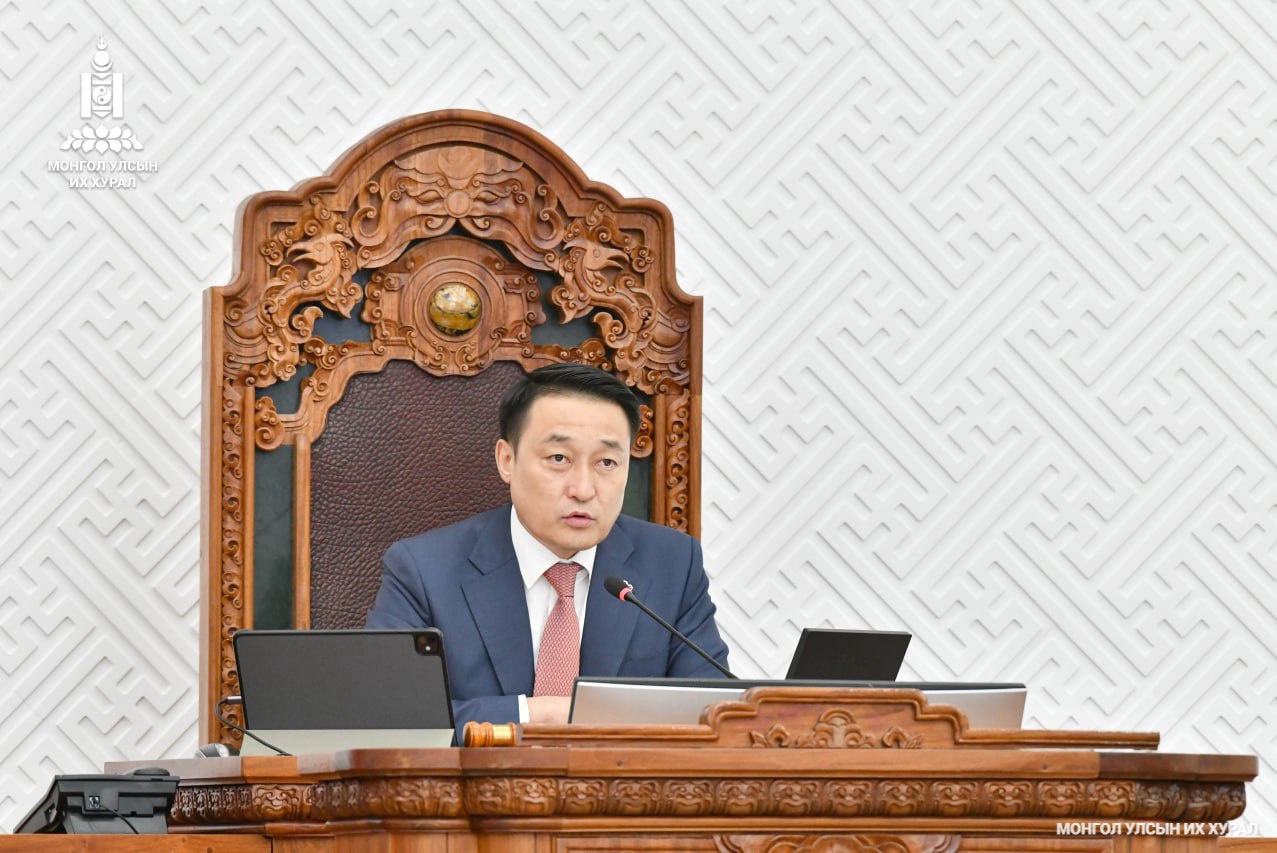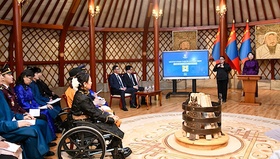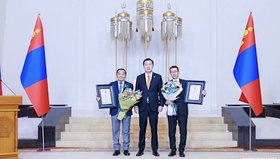The plenary session of the State Great Hural (Parliament) held this afternoon (May 01, 2025) discussed the 24th report on the state of human rights and freedoms in Mongolia. The presentation of the report was made by the Chief Commissioner of the National Human Rights Commission (NHRC) of Mongolia D. Sunjid.
The NHRC based its report on research, monitoring, evaluation, complaints, information, and inspections carried out in 2024, as well as official reports from the government, civil society, and international organizations. The report was divided into six sections and included 45 recommendations for decision-making by the State Great Hural (Parliament).
Chief Commissioner of the National Human Rights Commission (NHRC) of Mongolia D. Sunjid emphasized at the beginning of the report that despite the government's commitment to safeguarding children's interests through laws, cases of child sexual abuse have not decreased. She stressed the need for urgent, concrete measures to address this issue. She also mentioned that the United Nations (UN) mechanisms have given special attention to this matter, urging immediate focus, and presented nine recommendations for action in this regard. Additionally, the report included findings from the 2024 parliamentary elections and local elections, as well as an assessment of the conditions of human rights defenders, lawyers, and journalists, with a focus on ensuring their safety and the possibility of carrying out their professional duties. The NHRC also provided recommendations on reducing gender-based violence through the use of technology and improving the fair administration of justice.
During the discussion of the report in the Standing Committee on Justice, Member of Parliament Ts. Sandag-Ochir summarized the six sections of the report and noted that each of these topics was addressed in detail during the committee's session. MP N. Altankhuyag raised concerns about whether law enforcement agencies, including investigation, prosecution, and courts, were violating citizens' rights in their case-handling processes. He called for improvements in these agencies' operations and ensuring fairness and equality in their procedures. MP M. Narantuya-Nara raised issues about the effectiveness of the government's budget allocation for addressing child sexual abuse, noting that although the budget for child protection has increased, there are still limitations in taking effective measures. MP Dav. Tsogtbaatar discussed the implementation of laws related to freedom of the press and the protection of journalists' rights, as well as the NHRC’s attention to complaints and their resolutions. MP P. Sainzorig asked about the NHRC's stance on the constitutional amendments related to parliamentary elections made in 2019. MP Ts. Sandag-Ochir also assessed the effectiveness of the decisions made by the State Great Hural (Parliament) in response to the 21st, 22nd, and 23rd human rights reports, noting that insufficient progress had been made in implementing these decisions.
Moreover, MP P. Sainzorig stated that human rights issues are not only the concern of the Standing Committee on Justice. He highlighted the need for the parliament to make policy decisions and organizational measures to direct other state agencies, stressing that ensuring human rights is a long-term process that requires continuous budget allocation and policy decisions. He recommended categorizing the NHRC’s proposals according to the challenges related to policy-making, organizational measures, and budgetary constraints. He also commended the NHRC for addressing human rights violations and risks related to the right to vote and emphasized the need for parliamentary committees to discuss ongoing constitutional disputes related to elections. Finally, he suggested that the balance between technology and human rights should be prioritized, increasing the responsibility of technology owners in safeguarding human rights.
In response to the report by the Chairperson of the National Human Rights Commission (NHRC) and the opinions and conclusions of the Legal Affairs Standing Committee, 17 Members of Parliament, including O. Nominchimeg, D. Bum-Ochir, A. Ariunzaya, N. Altanshagai, O. Altangerel, and U. Otgonbayar raised questions and made statements.
MP O. Nominchimeg highlighted the important issues addressed in the NHRC’s report, including citizens' rights to vote and run for office, child abuse, the current state of human rights in the digital space, and the right to a fair trial, particularly regarding protection from torture. She suggested that the Parliament issue resolutions to give directions to the government on some issues and improve the laws on others, ensuring clear, time-bound responsibilities in the resolutions. She also emphasized the need for special attention to be paid to compensating victims of crimes.
MP D. Bum-Ochir drew attention to the increase in children aged 14-17 and younger children who were victims of criminal offenses between 2020 and 2024. He pointed out that many of these crimes were committed by family members or relatives, making the situation more complex. He recommended that the NHRC focus on prevention and effective public awareness campaigns for parents.
MP A. Ariunzaya presented alarming statistics on the impact of accidents and violence on children, revealing that among 844,000 individuals who sought medical care in the past five years due to accidents, 260,000 were children aged 0-14, with 320 children dying. She noted that 4,262 children sought medical care due to violence, including 253 children who attempted suicide. She warned that Mongolia is failing to protect its children.
MP N. Altanshagai asked about the NHRC’s prevention and public education efforts and their results. He cited a successful drama performance on child abuse by the Children's and Youth Theatre and recommended expanding such measures.
MP O. Altangerel pointed out that many of the pressing issues in the report are related to budget and financial constraints and requested that Parliament address these concerns when discussing the national budget.
MP U. Otgonbayar inquired about the percentage of children who were victims of digital crimes and how many of these cases had been resolved in court. He also asked what measures had been included in the plan to prevent such crimes and raise awareness about them, especially in relation to children.
MP P. Sainzorig praised the NHRC for thoroughly evaluating the six issues and recommended that Parliament take action by issuing decisions to provide the government with clear directions. He supported the suggestion by MP O. Altangerel regarding budget considerations and proposed that the NHRC’s recommendations be reviewed and debated by the relevant Standing Committees.
MP O. Batnairamdal expressed concern over the risks posed by artificial intelligence and its indirect influence on political orientation, referencing research from Stanford University. He suggested that international best practices regarding human rights risks related to AI be incorporated into legal frameworks to ensure responsible regulation.
MP S. Erdenebat highlighted how economic promises, such as stabilizing inflation, health insurance, and bank loan interest rates, are impacting citizens' rights to vote and run for office. He stressed the need for greater focus on protecting the rights of human rights defenders, journalists, and addressing issues like election-related labor rights violations and online harassment, particularly related to sexual violence, and ensuring press freedom.
MP J. Batjargal emphasized that the fulfillment of human rights depends on the government's accountability and implementation of its obligations. He called for the NHRC to provide recommendations to the Parliament, Government, and law enforcement agencies. He also pointed out that neglecting children's education and upbringing in national programs had led to a generation now entering society without proper preparation, underlining the need for systemic improvements in educational content and social development programs.
Deputy Chairwoman of the Parliament Kh. Bulgantuya, highlighted the legal system's failure to respond adequately to cases of child sexual abuse. She called for harsher penalties, mandatory registration of offenders, and better communication with child protection services, despite the existing legal framework. She also supported the creation of a family court system by 2026 and emphasized the need for comprehensive legislative measures to address child protection in the digital space and child abuse prevention.
These discussions reflect the need for continuous improvement in Mongolia's legal and policy framework to protect human rights and address the growing challenges in child protection and digital crimes.
Member of Parliament (MP) Ts. Iderbat also highlighted the issue of human rights in the digital space and emphasized the urgent need for amendments to relevant laws. He pointed out that it is time to evaluate the implementation of laws prohibiting the consumption of alcohol and intoxicating substances in the presence of children, and that the rights of civil servants, especially in rural areas, are being significantly violated. MP Ts. Sandag-Ochir inquired how the Human Rights Commission (HRC) selects the topics for its reports on the status of human rights and freedoms, and requested that the issue of civil servants facing penalties for carrying out their duties due to the passage of laws violating human rights be included in the next report. He also stressed the need for the HRC to provide assessments regarding laws with human rights violations and for the Parliament to pay attention to these issues. Furthermore, he suggested that the HRC should provide evaluations on whether proposed laws presented to the Parliament contain violations of human rights. MP O. Saranchuluun presented that a significant portion of users accessing government services online are elderly and people with disabilities, and asked for the HRC’s stance on improving and expanding the accessibility of these services, as the report contained limited recommendations on this matter. He also inquired about making the mechanism for filing complaints with the Commission clearer and more accessible, and on improving the rights of homeless people and those unable to live independently, as well as addressing the enforcement of anti-discrimination laws.
Additionally, MP D. Enkhtuvshin discussed how political parties are undermining citizens' rights to vote and run for office by not fulfilling their election promises, leading to a loss of public trust in the government, and inquired about the measures in place to monitor this. MP M. Narantuya-Nara presented the increasing causes of child sexual abuse year by year and emphasized that no matter how much budget is allocated, the issue cannot be resolved unless the underlying causes are addressed. MP B. Munkhsoyol analyzed the impact of income disparities and the urban-rural divide on domestic violence, and recommended focusing on improving indicators related to press freedom, justice, transparency, anti-corruption efforts, human rights, and gender equality.
After all MPs had asked questions and delivered speeches, Chairman of Parliament D. Amarbayasgalan announced that the six sets of recommendations put forward by the HRC regarding human rights in Mongolia, along with the 24th report, would be referred to the relevant Standing Committees. Recommendations regarding the right to vote and run for office were sent to the Standing Committee on State Structure; those regarding the protection of human rights defenders were referred to the Standing Committees on Justice and State Structure; issues concerning human rights and digital technology were forwarded to the Standing Committee on Innovation and Digital Policy; recommendations on gender-based violence in the digital space were directed to the Standing Committees on Social Policy, Innovation and Digital Policy, and Justice; and recommendations on the rights of children who are victims of sexual violence were sent to the Standing Committees on Justice and Social Policy. The Standing Committees will discuss these issues in detail, adopt relevant resolutions and decisions, and provide instructions to government agencies. The Standing Committee on Justice will then compile the issues discussed and present them to the plenary session of the Parliament for further consideration, as instructed by Chairman of Parliament D. Amarbayasgalan, according to the Parliament’s Secretariat.

 Eng
Eng  Монгол
Монгол